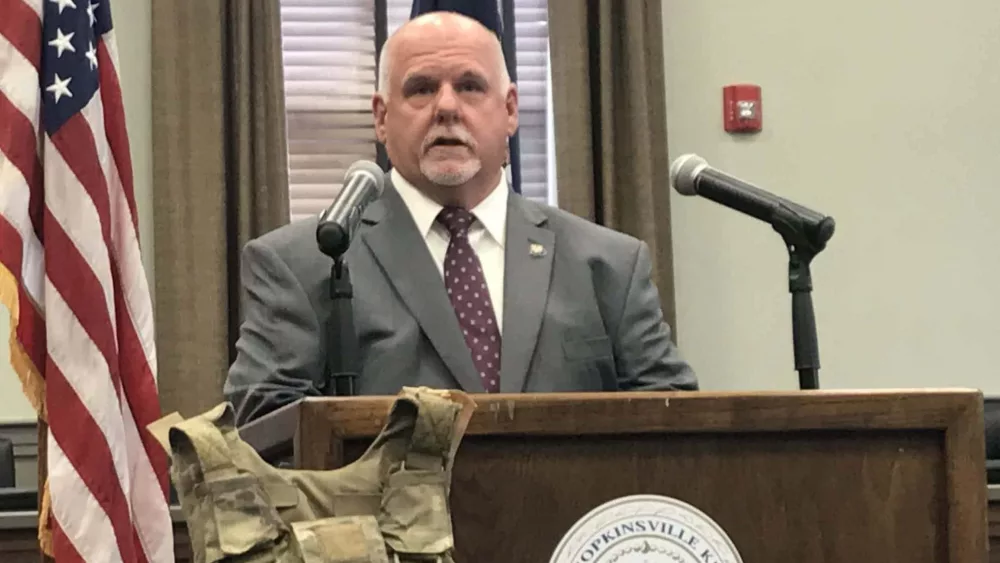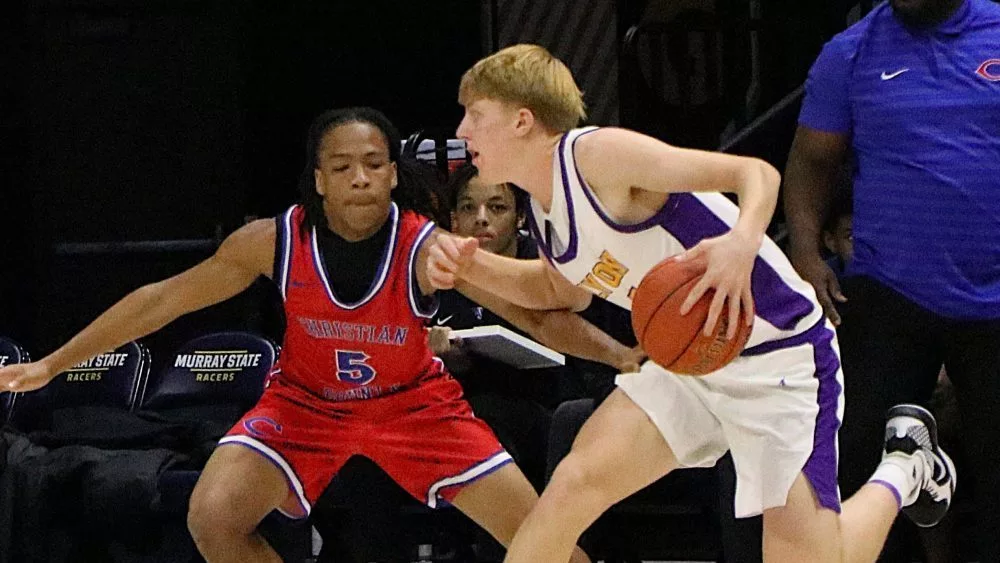
The Kentucky Supreme Court Thursday morning denied a motion from former Commonwealth’s Attorney Richard Boling — seeking his one-year suspension run concurrently with a previously imposed five-year suspension.
Furthermore, in the event Boling and the Bar Counsel fail to reach a different proposal for consensual discipline within 90 days of this ruling, the matter will proceed “as contested,” in accordance with the state’s highest authority.
According to the ruling, Boling acknowledged he “failed to full and properly review the evidence and testimony available to him” prior to grand jury presentation regarding a case against Seth Henderson — who saw second-degree manslaughter charges dismissed by Circuit Judge Andrew Self in an overdose death case.
It’s here where Olivia Adams, Henderson’s attorney, argued some months ago that Boling falsified testimony involving case-explicit text messages, and he noted in hindsight it would’ve been “more appropriate” to seek an indictment of drug trafficking, rather than the manslaughter death of Corbin Bowling.
In analysis from the Kentucky Supreme Court, an autopsy revealed that Corbin Bowling’s cause of death was “multiple drug intoxication—fentanyl,” and questioning from Attorney Boling to the detectives went as follows:
Boling: On or about January 9, 2021, Joshua Long contacted Seth Henderson to obtain some pills, is that correct?
Detective: Yes, sir.
Boling: Long purchased four pills for $92 from Henderson.
Detective: Yes, sir.
Boling: The purchased pills contained fentanyl. Long and Henderson texted each other saying, “Y’all be careful man and don’t let her take that whole thing. I K, I guess I don’t know, uh, she grown, but care about her too.” And the response was, “I won’t.”
Detective: Yes, sir.
Boling then explained that Long ingested the drugs, felt sick, then fell asleep. Long woke up to hear Bowling make a gurgling sound and observed vomit on her face and in the bed. Long called Henderson and told him about Bowling, then Henderson called 911 and drove to Bowling’s residence.
And then, more questions from the Commonwealth’s Attorney: Detective, you interviewed Long and Henderson. Long admitted to buying the four pills and having them in his possession. Long admitted that he and Bowling consumed some of 3 the purchased pills. Henderson’s phone contained text messages between him and Long about getting the pills and being careful with them. Is that correct?
Detective: Yes, sir.
Boling: As a result we are seeking an indictment against Joshua Long and Seth Henderson for complicity to manslaughter, second degree, resulting in the death of Corbin Bowling.
Detective: Yes, sir.
Grand jurors asked the detective a few questions about the type of drugs and whether Long and Bowling used the same drugs previously.
Then, Boling stated: To me, the most important part about this one is the fact that Henderson gives the warning about how to use them. So he either has previously used them and has knowledge or whoever he got them from told him these aren’t your ordinary pills. You have to treat them differently. I think, to me, when you give somebody that warning, obviously you know there is something going on here.
Henderson and Long were subsequently indicted on one count each of complicity to manslaughter, second degree, in connection with Bowling’s death.
However, the Commonwealth did not clarify that the text messages described were transmitted two days after her death, nor that there was no evidence that the text message sent by Henderson was to Long.
Boling then made the unsolicited statement about Henderson warning Long about the pills, when there was no evidence that Henderson gave a warning to Long or anyone else about the pills prior to Bowling’s death.
Previously reported, a trial commissioner has recommended a five-year suspension to resolve two disciplinary proceedings against Boling. The first stems from him writing a pardon letter on his official Commonwealth’s Attorney letterhead on behalf of Dayton Jones, who pled guilty to first-degree sodomy, first-degree wanton endangerment, and first-degree distribution of matter portraying a sexual performance by a minor following the assault of a 15-year-old boy passed out at a local party.
The other disciplinary proceeding originated from Brafman v. Commonwealth, in which the Supreme Court ruled he committed prosecutorial misconduct when he avoided eliciting information at trial from a detective about a defendant’s intoxication and eventually opposed a voluntary intoxication jury instruction.
FULL DOCUMENT: 2023-SC-0279-kb




